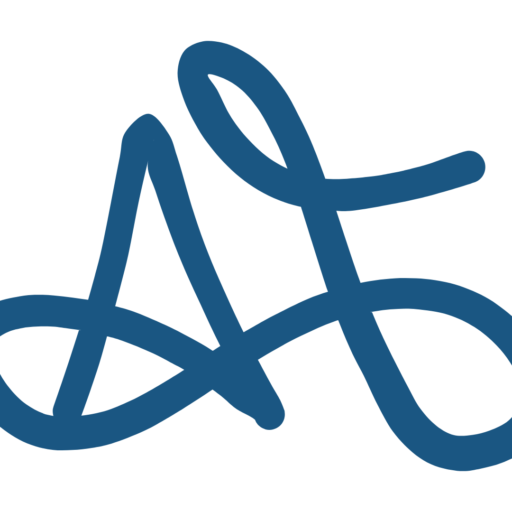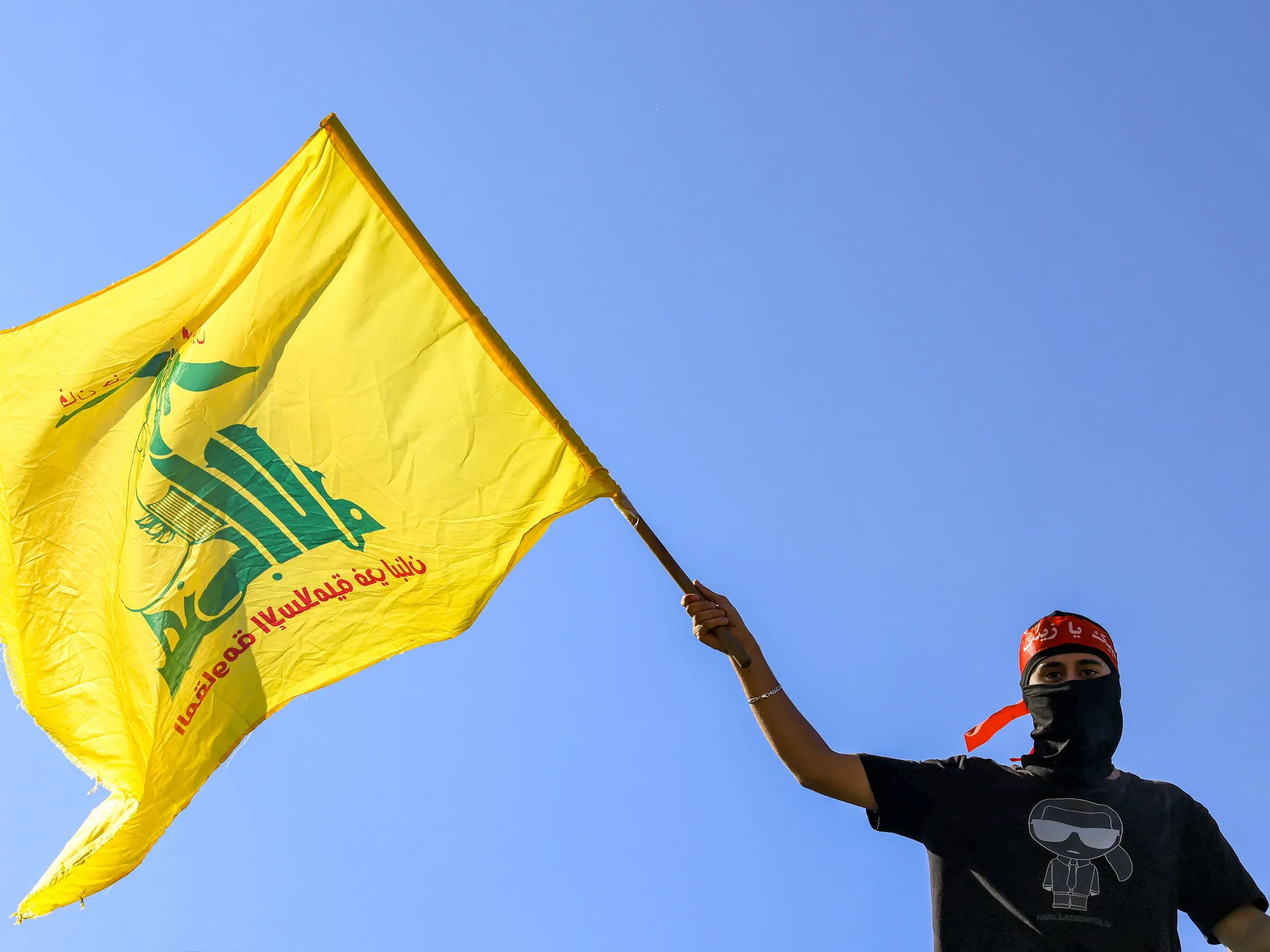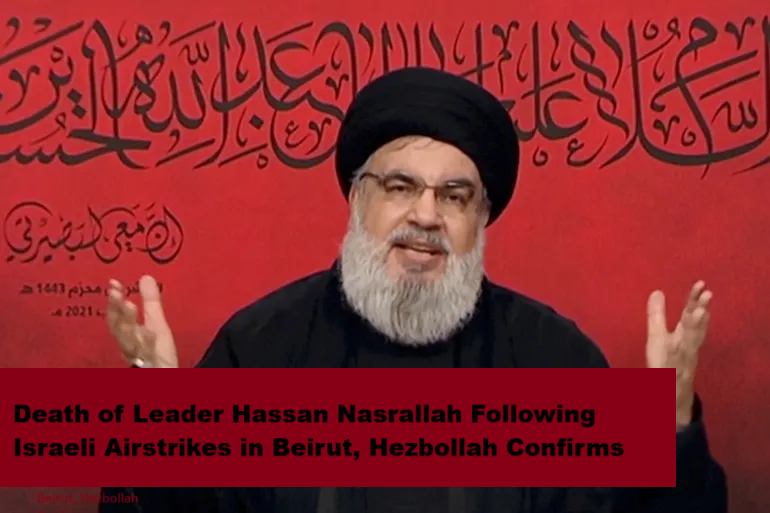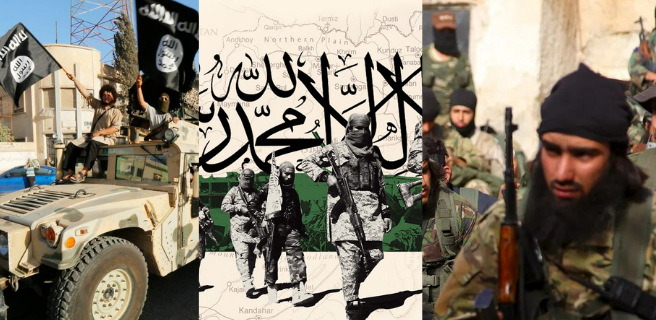What is Hezbollah and how did it originate?
Hezbollah is a Shiite Islamist political and militant group based in Lebanon. It is both a political party with significant influence in Lebanese politics and a paramilitary organization that has been involved in numerous conflicts in the Middle East, particularly with Israel.
a
Lebanon gained independence on November 22, 1943. This date marks the end of French mandate rule, which had controlled the country since World War I and with an 1943 National Pact, Lebanon’s leadership is distributed among its main religious communities: a Sunni Muslim serves as the prime minister, a Maronite Christian holds the presidency, and a Shiite Muslim is the speaker of Parliament which later will lead to disruptions and growing tensions among these groups, which eventually escalated into civil war.
a
By date, Hezbollah was founded in the early 1980s during the Lebanese Civil War, which lasted from 1975 to 1990.
a
In 1982, Israel launched a large-scale invasion of southern Lebanon, primarily to drive out the Palestine Liberation Organization (PLO) forces that were based there. The invasion created widespread resentment among the Shiite population in southern Lebanon, who felt oppressed by the Israeli occupation. This occupation, combined with ongoing civil strife, contributed to the rise of Hezbollah.
a
Prior to Hezbollah’s emergence, Lebanon’s Shiite community was politically marginalized and economically disadvantaged. Hezbollah positioned itself as a champion of Shiite rights.
a
How strong is Hezbollah?
Hezbollah is one of the most powerful non-state actors in the Middle East, with significant military, political, and social influence.
a
Hezbollah’s military capabilities are a key aspect of its power, and they have evolved considerably since the group’s formation in the 1980s.
a
Hezbollah’s fighters are battle-hardened from multiple conflicts with Israel, including the 2006 Lebanon War. The group’s ability to sustain combat against a highly advanced military like the Israel Defense Forces (IDF) has earned it a reputation as a formidable military force while being a major political force in Lebanon, with significant influence over the country’s government and institutions.
a
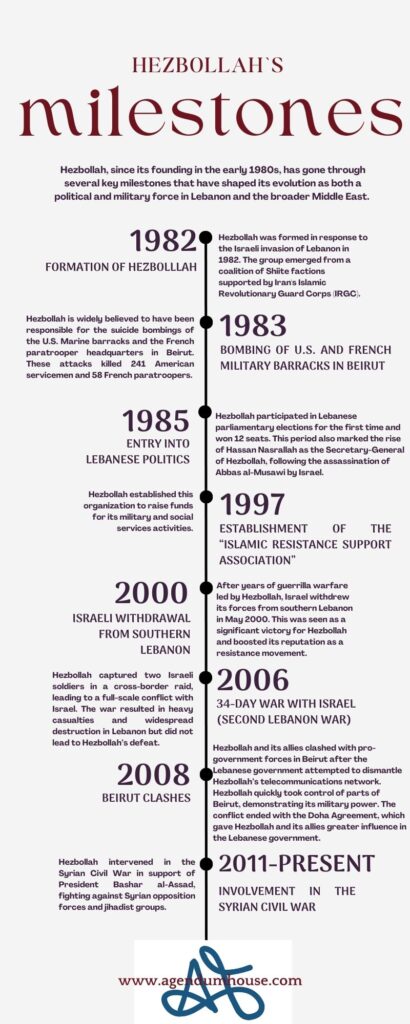
Milestones of Hezbullah:
a
How Hezbollah is related to Iran?
a
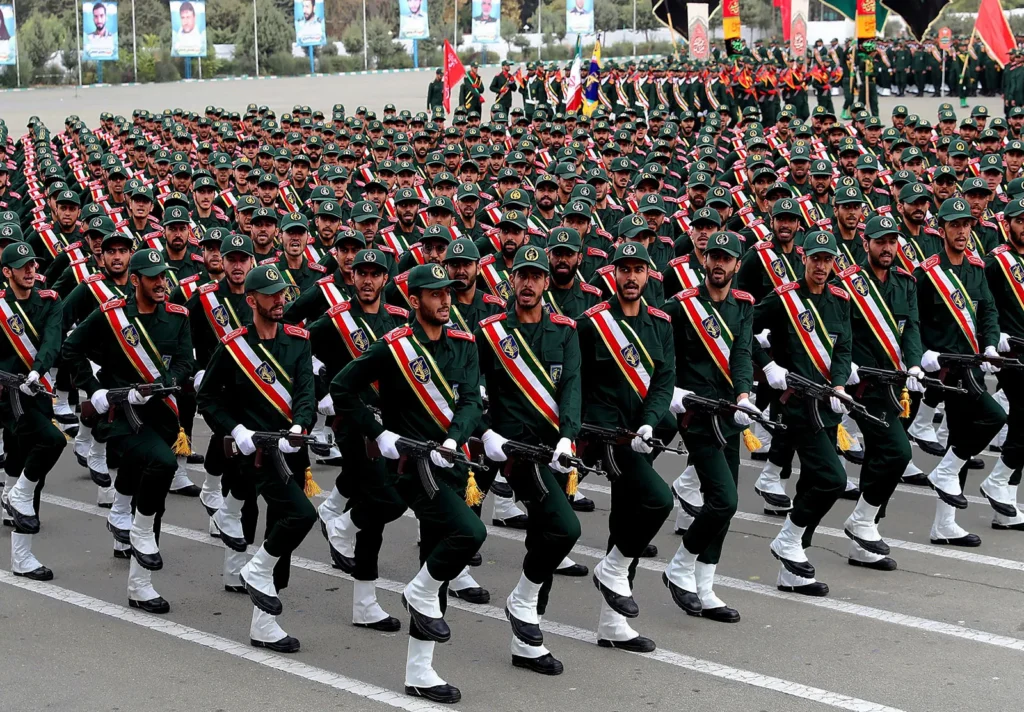
Hezbollah’s relationship with Iran is deep and multifaceted, encompassing ideological, financial, military, and strategic dimensions. Since its founding in the early 1980s, Hezbollah has been closely aligned with Iran, particularly with its leadership and the Islamic Revolutionary Guard Corps (IRGC).
a
Hezbollah was ideologically inspired by the Iranian Revolution of 1979, which led to the establishment of the Islamic Republic of Iran under Ayatollah Ruhollah Khomeini. The revolution’s principles of establishing an Islamic state governed by Sharia law and opposing Western influence resonated with the Shiite community in Lebanon.
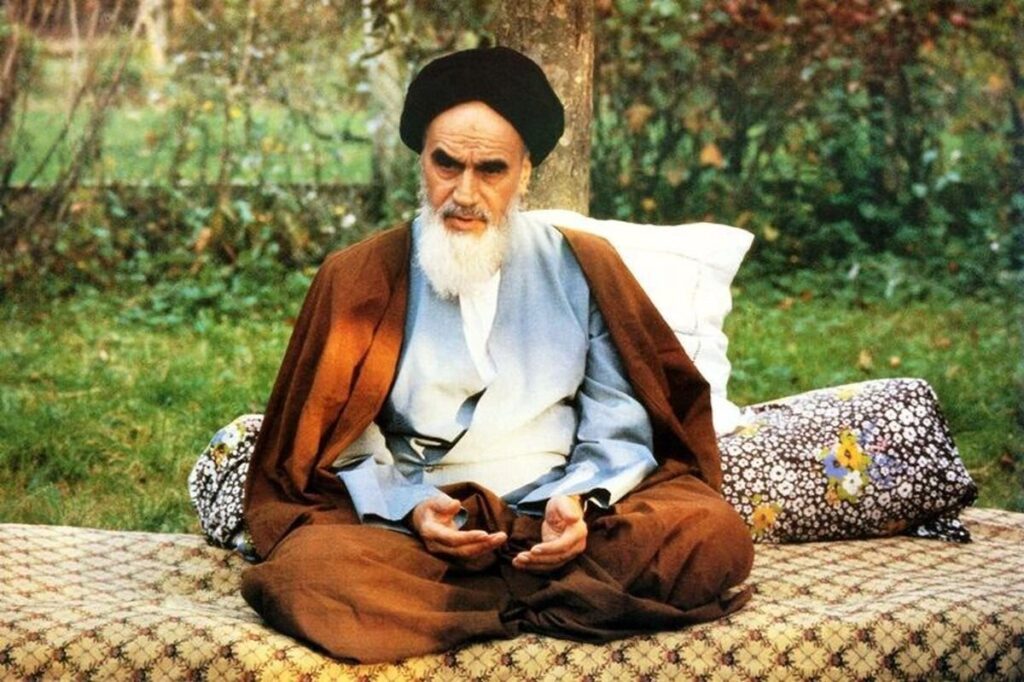
a
Hezbollah adheres to the doctrine of Wilayat al-Faqih, which posits that a senior Islamic jurist should have authority over both religious and political matters in the absence of the Twelfth Imam. In practice, this means Hezbollah recognizes the Supreme Leader of Iran as its ultimate religious and political authority. This alignment ties Hezbollah’s strategic decisions closely to Iran’s interests.
a
Iran is the primary financial supporter of Hezbollah. It provides hundreds of millions of dollars annually, which fund Hezbollah’s military operations, social services, and political activities in Lebanon. This financial support allows Hezbollah to maintain its extensive social welfare network, including schools, hospitals, and other services that build loyalty among Lebanon’s Shiite population.
a
While Hezbollah is closely aligned with Iran, it also operates within the complex political environment of Lebanon, where it must balance its loyalty to Iran with the interests of its Lebanese Shiite base.
a
What about the relationship between the United States and Hezbollah ?
The U.S. views Hezbollah as a major threat due to its militant activities, close ties with Iran, and its role in destabilizing the Middle East.
a
The U.S. government officially designated Hezbollah as a Foreign Terrorist Organization (FTO) in 1997. This designation was based on Hezbollah’s history of terrorist attacks, including the 1983 bombings of the U.S. Embassy and Marine barracks in Beirut, which killed hundreds of Americans.
a
Hezbollah is also listed as a Specially Designated Global Terrorist (SDGT) by the U.S. Treasury Department. This designation allows the U.S. to impose sanctions on individuals, entities, and countries that provide support to Hezbollah.
a
Which Arab countries recognize Hezbollah as a Terrorist Organization ?
Several Arab countries, particularly those in the Gulf Cooperation Council (GCC), have officially designated Hezbollah as a terrorist organization. The designation is largely driven by these countries’ opposition to Iran’s influence in the region, given Hezbollah’s close ties with Tehran.

a
Here’s a list of Arab countries that recognize Hezbollah as a terrorist organization:
a
Gulf Cooperation Council (GCC) Countries
- Saudi Arabia
- United Arab Emirates (UAE)
- Bahrain
- Kuwait
- Qatar
- Oman
a
Individual Arab Countries
Saudi Arabia: Prior to the GCC’s collective designation, Saudi Arabia had already taken steps against Hezbollah, including sanctions on individuals and entities linked to the group.
a
Bahrain: Bahrain has been particularly vocal in its designation of Hezbollah as a terrorist organization due to concerns over Iran’s influence and alleged Hezbollah support for Shia opposition groups in the country.
a
Arab League
Arab League’s Stance: In 2017, the Arab League, under the influence of Saudi Arabia and its allies, issued a statement condemning Hezbollah as a terrorist organization. However, this declaration did not represent a unanimous decision among all Arab League members, as countries like Lebanon and Iraq, where Hezbollah has significant influence or support, opposed the designation.
a
Other Considerations
Lebanon and Iraq: Notably, Lebanon and Iraq do not designate Hezbollah as a terrorist organization due to Hezbollah’s strong political and military presence in these countries. In Lebanon, Hezbollah is a major political party and military force, and in Iraq, it has allies among the Shia militias.
a
The relationship between Hamas and Hezbollah :
The relationship between Hamas and Hezbollah is characterized by both cooperation and divergence, shaped by their distinct origins, goals, and regional alliances. Despite differences, they share common interests, particularly in their resistance against Israel and opposition to Western influence in the Middle East.
a
Common interests include resisting Israeli policies and military actions and receive significant support from Iran such as financial aid, weapons, and military training.
a
While there is important common interests there are also some particular differences such as the secretarian differences:
a
Hamas is a Sunni Islamist organization with origins in the Palestinian Muslim Brotherhood. Its activities and ideology are primarily focused on Palestinian national issues and the establishment of an Islamic state in Palestine while Hezbollah is a Shia Islamist group with strong ties to Iran and its Shia ideology. It operates primarily in Lebanon and focuses on resisting Israeli occupation in Lebanon, as well as advancing Iranian strategic interests.
a
Regarding the common interest and differences the relationship between Hamas and Hezbollah is a strategic partnership. Despite their cooperation, their differing sectarian identities, regional focuses, and strategic goals create a complex dynamic that occasionally leads to divergence and tension.
a
